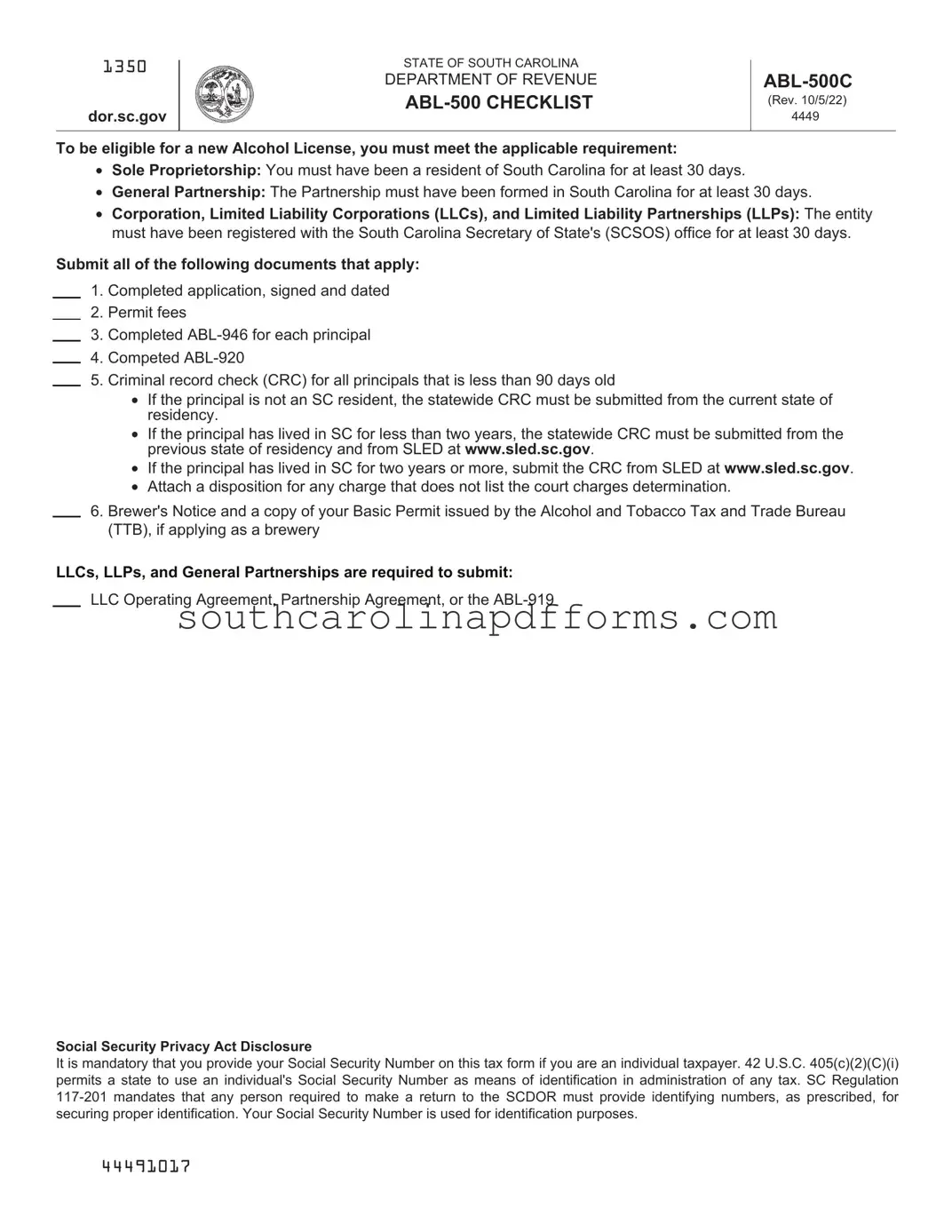South Carolina Abl Template
The South Carolina ABL form is a crucial document for entities seeking to obtain a license for alcohol production or importation in the state. This form is specifically designed for corporations, limited liability companies (LLCs), partnerships, and sole proprietors who wish to engage in the beer and wine industry. To successfully navigate the application process, applicants must meet certain residency and registration requirements, as well as submit various supporting documents.
Access South Carolina Abl Here
